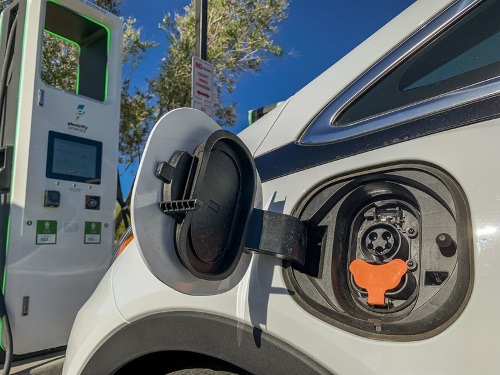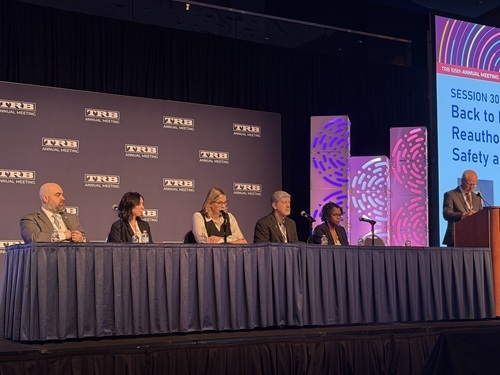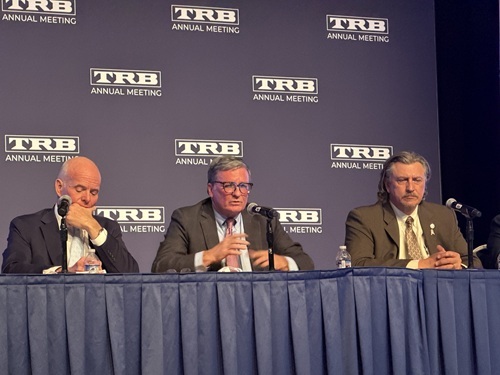On July 4, President Donald Trump signed into law the $3.4 trillion budget reconciliation bill HR 1, entitled the “One Big Beautiful Bill Act” or OBBBA, after the House of Representatives agreed to the Senate-passed version of OBBBA by a vote of 218 to 214. The text of OBBBA can be found here.
[Above photo via the White House]
According to analysis by the American Association of State Highway and Transportation Officials, the OBBBA contains several measures that affect a variety of transportation programs.
First, it rescinds three programs established by the Inflation Reduction Act of 2022 or IRA: the Low Carbon Labeling for Construction Materials program; the Neighborhood Access and Equity program; and the Low Carbon Transportation Materials grant program.

The new law also terminates several electric vehicle-related tax credits established by the IRA: By September 30, it eliminates the $7,500 tax credit for new EVs and the $4,000 credit for used EVs and for commercial vehicles; by June 30, 2026, it eliminates tax credits for EV charging infrastructure under the Alternative Fuel Vehicle Refueling Property Credit program.
The OBBBA also eliminates penalties for noncompliance with Corporate Average Fuel Economy or CAFE standards that regulate how far a vehicle must travel on a gallon of fuel.
In terms of funding increases, the OBBBA provides $12.5 billion in air traffic control or ATC improvements, including $7.75 billion for telecommunication systems and radars and $1.9 billion for ATC consolidation.
Additionally, the new law institutes a set of space launch fees based on payload weight and requires the Federal Communications Commission to auction off at least 800 megahertz of spectrum.
AASHTO noted in its analysis that several measures contained in the initial drafts of the bill were not in the final legislative package.
For example, proposed national registration fees for electric vehicles ($250 per year), hybrid vehicles ($100 per year), and all other vehicles ($20 per year) – considered as part of the House’s deliberation of HR 1 in late April – were not in the Senate’s final version of the bill eventually signed into law by President Trump.
 Top Stories
Top Stories
State DOT CEO Panel Talks Reauthorization at TRB
January 16, 2026 Top Stories
Top Stories

